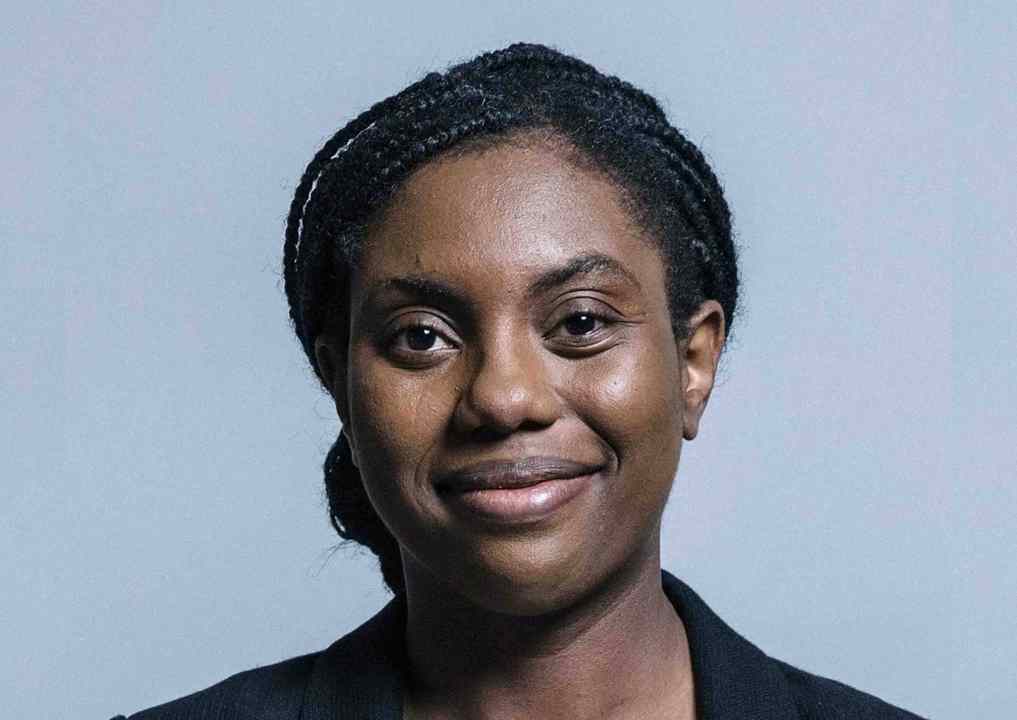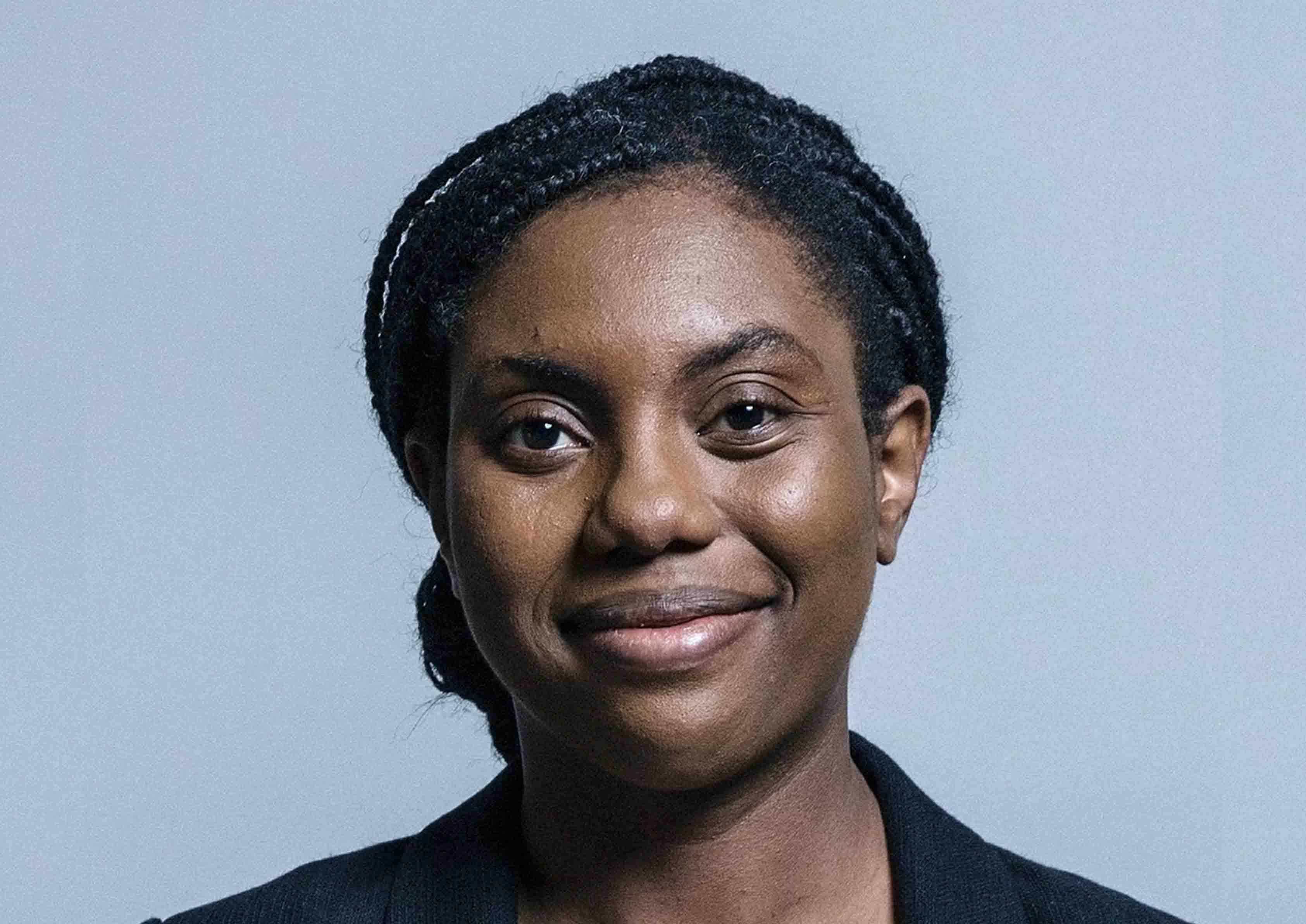This is an edited transcript of Kemi Badenoch’s speech announcing her candidacy for the Conservative party leadership.
It’s time to tell the truth. For too long, politicians have been telling us that we can have it all: have your cake and eat it. And I’m here to tell you that is not true. It never has been. There are always tough choices in life and in politics. No free lunches, no tax cuts without limits on government spending, and a stronger defence without a slimmer state. Governing involves trade-offs, and we need to start being honest about that.
Unlike others, I’m not going to promise you things without a plan to deliver them. People are sick of that. They’re crying out for honesty. Today, I want to be honest about our economic challenge. The scale of the challenge we face means we can’t run away from the truth. Inflation has made the cost-of-living crisis acute, but the problems go back way further. We’ve had a poor decade for living standards. We have overburdened our economy. There’s too much unproductive public spending, consuming taxpayers’ hard-earned money. And there are too many well-meaning regulations slowing growth and clogging up the arteries of the economy. Too many policies like net-zero targets set up with no thought to the effects on industries in the poorer parts of this country. And the consequence is simply to displace the emissions of other countries. Unilateral economic disarmament. That is why we need change.
I will not enter into a tax-bidding war
And that is why I’m running to be leader. The Prime Minister should tell the truth, because the truth will set us free. The problems run deep. And I’m in no doubts about the scale of the challenge any new prime minister will have to deal with. The underlying economic problems we face have been exacerbated by Covid and by war. But what makes the situation worse is that the answers to our problems, conservative answers, haven’t been articulated or delivered in a way appropriate to the modern age. We have been in the grip of an underlying economic, social, cultural and intellectual malaise. The right has lost its confidence and courage and ability to defend the free market as the fairest way of helping people prosper. It has been undermined by a willingness to embrace protectionism for special interests. It’s been undermined by retreating in the face of the Ben and Jerry’s tendency, those who say a business’s main priority is social justice, not productivity and profits, and it’s been undermined by the actions of crony capitalists, who collude with big bureaucracy to rig the system in favour of incumbents against entrepreneurs. The truth that limited government – doing less for better – is the best way to restore faith in government has been forgotten, as we’ve piled into pressure groups and caved in to every campaigner with a moving message. And that has made the government agenda into a shopping list of disconnected, unworkable and unsustainable policies.
The knowledge that the nation state – our democratic nation state – is the best way for people to live in harmony and enjoy prosperity has been overridden by the noisy demands of those who want to delegitimise, decolonise and denigrate. And if we don’t stand up for our shared institutions – for free speech, due process and the rule of law – then we end up with a zero-sum game of identity politics, which only increases divisions when we need to come together.
So free markets, limited government, a strong nation state. Those are the conservative principles we need to beat back protectionism, populism and polarisation, and to prepare us for the challenges ahead. To win for our country. If I were Prime Minister, I would be driven by these conservative principles to deliver a fairer, freer, wealthier, and united Britain. It’s those conservative principles, and the belief in facts, however uncomfortable, with unflinching honesty, that will guide my approach to government and how he puts things right.
So how are we going to do this? I’m an engineer, a systems thinker, a problem solver. In engineering you can’t overcome resistance with rhetoric. You can’t get the machine to work with promises. You need to analyse the issue deeply, untangle the mess others have made, and methodically put things right. In the debate we’ve been having about the future of our party and our country, there have been lots of promises to cut taxes, and I can understand why. With economic growth faltering and the highest tax burden in decades, it is right that we ask: how do you reduce taxes on businesses, families and individuals? And I am committed to reducing corporate and personal taxes. But I will not enter into a tax-bidding war over ‘my tax cuts are bigger than yours’. To make you make promises that you cannot keep is a betrayal of everything that I stand for.
I really want to stress that the dividing line in this race is not tax cuts. It’s judgment. You can only deliver lower taxes if you stop pretending that the state continues to do everything for your country. It’s not just a matter of doing the same with less. We need to focus on the essential. We need to be straight with people. The idea we can simply say ‘efficiency savings’, click our heels twenty times and they’ll materialise is for the birds. It’s the scale and structure of government that drives the inefficiencies.
My government will discard the priorities of Twitter and focus on the people’s priorities. When we can’t deliver passports and driving licenses on time, why are we spending millions on people whose jobs literally didn’t exist a decade ago, like staff wellbeing mentors? What about the wellbeing of the actual public, who can’t go on holiday because we can’t process a piece of paper in time? We are spending more than you have ever done, and yet people’s satisfaction with the quality of their day-to-day services is falling. This is not sustainable. We can’t carry on subsidising so many young people onto university courses which leave them in debts and diminished job prospects. We must require schools to concentrate on effective whole class teaching of rigorous subjects rather than allocating tight resources to superfluous support staff and peripheral activities. We should get the police to focus on neighbourhood crime and not waste time and resources worrying about hurt feelings online.
By reducing what government tries to do, we not only reduce the cost of government, we not only focus and focus government on the people’s priorities, we allow the space for individuals, employers and entrepreneurs to solve problems. And only then do we create the opportunity to cut taxes. Yes, you can reduce the amount we spend on international aid while still remaining a force for good in the world. We can ensure an efficient civil service, but let’s be clear: simply getting rid of diversity and equality officers is not going to move the dial. It’s not good enough to just promise a bonfire of the quangos. Every single quango leader is accountable and sackable by a democratic minister. We can create proper accountability around £100 billion in grants which government currently dispenses. Every household in the country, especially during the course of the current cost-of-living crisis, thinks about value for money with every pound of the earned wages that they spend. Government doesn’t do that when it comes to people’s taxes. While the priority of the £300 billion the government spends on procurement should be value for money, in truth, this is being undermined by tick box exercises in sustainability, diversity, and equality. These are all good things, but they need to be done properly and we mustn’t move away from the core mission.
Now I recognise that this is an ambitious agenda. And running to be Prime Minister when you’re a 42-year-old is by definition ambitious, but I am ambitious: for our country and for our party. I chose to become a Conservative MP to serve, and I chose this country because I can be who I am and I could be everything that I wanted to be. I grew up in Nigeria, and I saw first hand what happens when politicians are in it for themselves, when they use public money as their private piggy bank, when they promise the earth and pollute not just the air, but the whole political atmosphere with their failure to serve others. I saw what socialism means for millions: poverty and broken dreams. I came to Britain, determined to make my way in a country where hard work and honest endeavour can take you anywhere. I paid my way through college, working in McDonald’s, flipping burgers, cleaning loos, and I learned first hand that only your own money, rather than relying on others, gives you not just more freedom, but more dignity. I am so grateful to so many people who took a chance on me and helped me succeed. But I also remember that throughout my life there have been people who said, ‘You can’t. You shouldn’t. This is not for you.’ And in politics, many people said, ‘You’re in the wrong party. You’re saying the wrong things. You can’t do that.’
But I’m not the sort of person who you can sideline, silence, or cancel. I tell the truth. I fight for change. I stand up for people, and I stand up for the causes and the country I love. Some might say this is no time for novices. I think this is no time for steady as it goes, sinking into decline. It’s time for change. To win the next election and deliver conservative solutions to the challenges of today, the Conservative party must stand as the party of change. I have the conviction, the courage, and the clarity of thought to deliver that change for the people of this country. Thank you.
This article is free to read
To unlock more articles, subscribe to get 3 months of unlimited access for just $5








Comments
Join the debate for just £1 a month
Be part of the conversation with other Spectator readers by getting your first three months for £3.
UNLOCK ACCESS Just £1 a monthAlready a subscriber? Log in